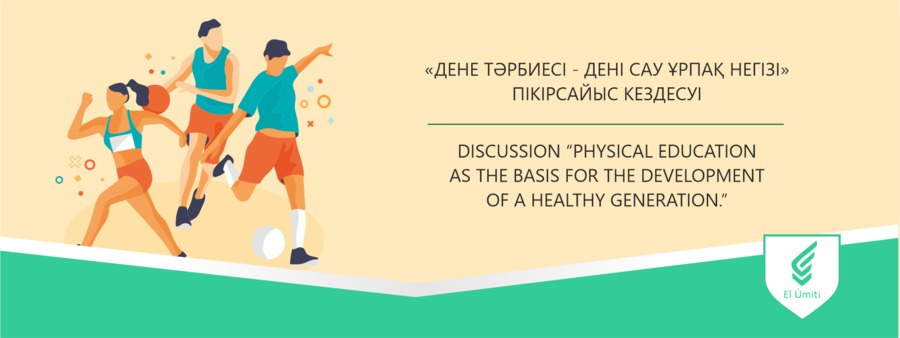Physical education as a basis for a healthy generation

On September 23, the Elbasy Academy discussion platform brought together three areas – mass sports, preschool education, and healthcare to explore the current problems in the development of mass sports in regions.
Deputy Minister of Culture and Sports Saken Musaibekov, Chair of Preschool and Secondary Education Committee at the Ministry of Education and Science Maira Meldebekova, and experts from Germany, Finland and Italy participated in the discussion along with members of sectoral teams.
The meeting participants presented their proposals on how to consolidate the efforts of ministries of sports, education, and healthcare and discussed the improvement of methods and programs to train specialists and inclusive sports as a new format of socialization.
Team mentor and Chief Manager of the Kazakh Association of Martial Arts Safiya Teleubayeva emphasized several main problems in the development of mass sports in Kazakhstan. According to her, it is necessary to test the allocation of a government contract to the training of athletes in one sport in private clubs in Nur-Sultan and Almaty. She said most rapidly developing sports, such as Muay Thai in Almaty or grappling in the capital, are suitable. The pilot project will last at least two years and at the end of each year, the results of the work of sports schools and private clubs will be compared.
“Switching to market relations in sports is an inevitable process and this experiment is a smooth transition which will allow coaches to adopt, because, in a competitive environment, they will have to compete for a client, in other words, an athlete. If a child does not achieve any results, parents will transfer him or her to another coach,” said Safiya Teleubayeva.
Leader of the mass sports development team and sports manager at the Association of Martial Arts Yernazar Beksultanov suggested the creation of a national center to consolidate the efforts.
“According to preliminary calculations, the state allocates nearly 250 billion tenge from the Ministries of Culture and Sports, Health, and Education and Science. The address of the President emphasized the need to revise the allocation of funds to professional sports and focus on the development of mass physical culture. In doing so, one of our proposals includes a top to the bottom solution, full interaction between the regional and national levels, as well as the creation of a national center that will work with all regions of the country and unite all stakeholders. We are working on this with our three teams,” said Beksultanov.
Foreign experts noted the need to introduce physical education from preschool age. The colleagues believe what children learn at this stage of their development will significantly affect their future. In Germany, for example, sports movement has been very developed among children and young people since their preschool age attracting children, teachers, parents, and public figures. Outdoor activities are encouraged. The social component was also voiced, as the development of an education program should take into account all needs of children, including their physical and mental state.
Ph.D. student at Nazarbayev University Graduate School of Education and preschool education team leader Gauhar Kiikova told about the сorrelation between early childhood development and lifelong health. In her presentation, she brought up the examples of the Harvard University Center on the Developing Child and the OECD (Organization for Economic Cooperation and Development) Future of Education and Skills 2030 Report.
“The main topic in the OECD report is to make physical education dynamic and inclusive by 2030. Experts include children’s physical development among core foundations for future well-being along with literacy, social and emotional competencies. It is important to shift away from focusing on academic performance, which, unfortunately, is common not only in kindergartens and primary school,” said Kiikova. The key point in redesigning the physical education curriculum is its inclusiveness and accessibility for everyone without exception.
Advisor to the sectoral change managers program and Aide to the President and Security Council Secretary Asset Issekeshev concluded the presentations of the participants and told team leaders to collect all their proposals to present them to the government.
“I would like to note that before implementing all ideas, they are needed to be grouped correctly. First, there are many good programs adopted at national and regional levels, therefore they need to be studied to understand what could be improved and incorporate successful cases in particular regions. Secondly, perhaps the problem with already existing programs is their implementation and institutional changes are needed. Let me remind you of the essence of the program to train sectoral change managers, which is to introduce specific changes and present a management solution to improve the sector,” said Asset Issekeshev.
The program to train sectoral change managers to carry out institutional reforms and 100 Steps - Plan of the Nation was launched by the Foundation of Nursultan Nazarbayev. As part of this project, 200 industry experts work to address the tasks in 11 sectors of the economy in order to develop proposals on its transformation.

